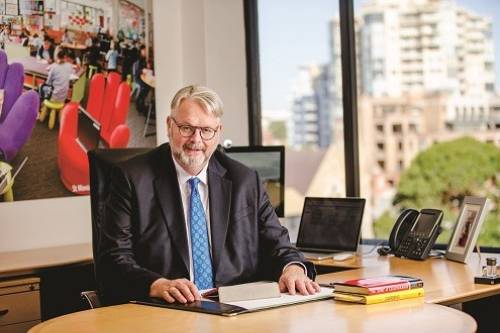
When lockdown ended last week, politicians were pushing in at the public bar eager to be seen skulling a schooner to show things were ‘back to normal’. Our insatiable thirst for something like the ‘good old days’ will see similarly old-fashioned images of school splashed across the evening news.
If there’s anything to be learnt from COVID-19, it’s not just that the world has changed but that when it comes to education we’re pretty good at changing when we need to be.
Some will be shouting from the sidelines to say that we just need to get ‘back to basics’. This old-fashioned rhetoric is as meaningful as yearning for the return of the six-o’clock swill. It’s a national shame that our public debate about schools, skills and learning is stuck on sabre-rattling for culture wars: no serious educator is interested in taking up arms. Around this time of the year, there’s usually a bit of argy-bargy about the future of the HSC too. Forget it - that’s not the conversation we need to be having about school and change as our students return to the classroom.
What’s worth fighting for is learning that means something to students. Do our schools have the courage to continue this change? It’s a battle for relevance and in a COVID-19 world, school was winning. Right now, school means a lot to students. They’re busting to be there, not to get away - and as any honest teacher will tell you, this is something new. How can we take this and change the way we do school every day to make sure that this connection leads to the very best learning it can? What do these young people need to know and be able to do these days?
I recently made the mistake of suggesting that we need an education system that responds to uncertainty. The Twittersphere exploded with the righteous indignation of people who are certain about everything. Yet since my stodgy suburban school days, I sense that the certainty’s stocks have fallen somewhat. If there’s one thing I am certain of, it’s that school still needs to change more to stay relevant in skilling our children and young people. Even the certainty squad can’t deny that resilience is a useful skill for school kids.
As we learnt in the last months, you can take away the classroom, the playground, even the canteen, and yet school endures. COVID has shown us that school is tough and human. Technology is just a tool that should be used to make sure that staff can focus on the relational aspects of the work. This is what great teachers do best, and I know during lockdown that the inability to connect with some students as effectively as we can face-to face has been a gut-wrenching experience.
Somewhere in the media coverage of the great joy of returning to school, you are going to notice a chalkboard graphic with ‘back to school’ scrawled across it in foundation handwriting. Shuffling a natural nostalgia to one side, you’re going to remember that chalkboards went the way of the cassette tape sometime in the early 90s. And after that, we’re all going to demand more of our education system: relevance, connection and most of all, change.
Greg Whitby is the executive director of the Catholic Education Diocese of Parramatta


